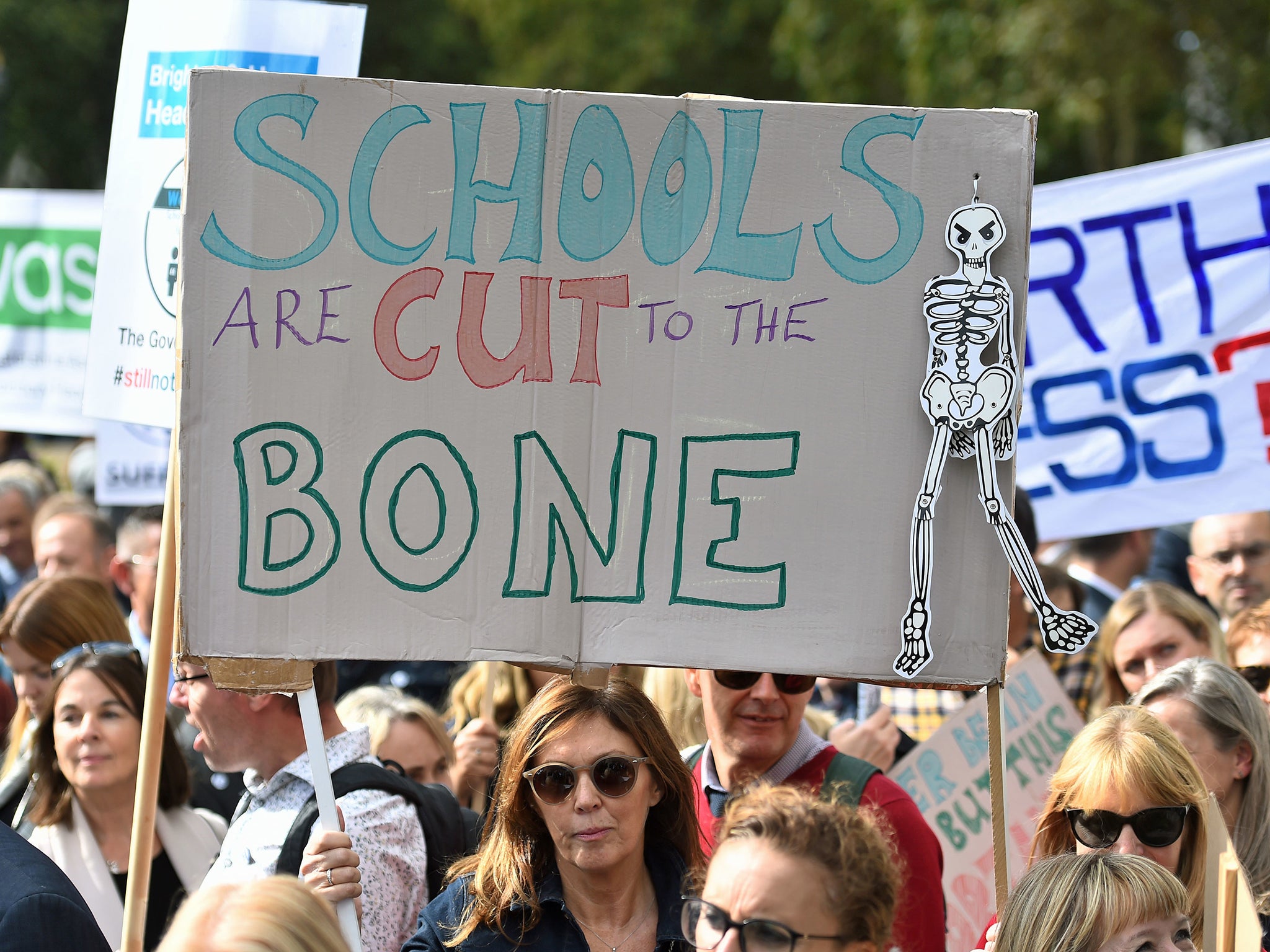Schools with most disadvantaged pupils could miss out under Boris Johnson’s funding pledge, analysis suggests
The northeast would receive lowest additional funding despite larger attainment gap

Your support helps us to tell the story
From reproductive rights to climate change to Big Tech, The Independent is on the ground when the story is developing. Whether it's investigating the financials of Elon Musk's pro-Trump PAC or producing our latest documentary, 'The A Word', which shines a light on the American women fighting for reproductive rights, we know how important it is to parse out the facts from the messaging.
At such a critical moment in US history, we need reporters on the ground. Your donation allows us to keep sending journalists to speak to both sides of the story.
The Independent is trusted by Americans across the entire political spectrum. And unlike many other quality news outlets, we choose not to lock Americans out of our reporting and analysis with paywalls. We believe quality journalism should be available to everyone, paid for by those who can afford it.
Your support makes all the difference.Schools that serve the most disadvantaged children are set to miss out under Boris Johnson’s pledge to “level up” funding, analysis suggests.
Those with more affluent intakes, including the majority of grammar schools, will benefit under the prime minister’s proposal, a report from the think tank Education Policy Institute (EPI) says.
The findings come on the same week that progress in closing the GCSE attainment gap between poorer pupils and their peers has come to a standstill for the first time since 2011.
Mr Johnson has vowed to increase the minimum level of per pupil funding from £3,500 to £4,000 in primary schools and from £4,800 to £5,000 in secondary schools.
This would give a greater boost to schools with less challenging intakes – whereas schools with more disadvantaged students, such as those eligible for free school meals or who speak English as an additional language, would receive less of an uplift despite having greater needs, the analysis suggests.
The pledge from Mr Johnson, who attended the prestigious Eton College before studying at the University of Oxford, will benefit all but 12 of England’s 163 grammar schools, the report says.
“The prime minister’s drive to level up school funding implies that funding should be equal despite the fact that children’s circumstances and opportunities are anything but,” Jon Andrews, deputy head of research at EPI, said.
He added: “This approach would disproportionately direct additional funding towards the least disadvantaged schools with the least challenging intakes at a time when progress in closing the attainment gap has stalled and may be about to go into reverse.”
This week, the think tank warned it could take 560 years to close the disadvantage gap after figures revealed that poorer students in England are 18 months behind their wealthier classmates.
The new analysis on school funding suggests the northeast would receive the lowest additional funding, apart from London, despite poorer pupils being almost two years behind their peers.
Mr Johnson has promised to reverse cuts with an additional £4.6bn per annum by 2022. But the education unions argue that an additional £12.6bn is needed over the next three years.
Paul Whiteman, general secretary of school leaders’ union NAHT, said: “What schools need is a clear and concrete funding plan to be officially announced – and they need it now. Schools leaders are currently budgeting for the new school year, which starts in just a month.
“They are already having to make heartbreaking decisions on what to cut as they struggle to balance budgets stretched to breaking point.”
Geoff Barton, general secretary of the Association of School and College Leaders, said: “The EPI report shows that children from disadvantaged areas are most likely to be adversely affected by the prime minister’s proposals, further widening the attainment gap between rich and poor children.
“Education cuts have caused immense damage resulting in rising class sizes, cuts to courses, reduced support for students, and huge pressure on funding for children with special educational needs.
“The government must now listen to the evidence – the fact that so much more money is needed is not a case of us being unrealistic, but a reflection of the totally inadequate level of funding currently provided.”
Angela Rayner, Labour’s shadow education secretary, said: “Schools across England have been hit by years of Tory cuts and need investment to give every child the best possible start in life, not just a lucky few.”
A Department for Education spokesperson said: “The prime minister has made clear that we will increase minimum levels of per pupil funding in primary and secondary schools and return education funding to previous levels.
“We will be announcing more details in due course and, until then, any assumptions are purely speculative.”
Join our commenting forum
Join thought-provoking conversations, follow other Independent readers and see their replies
Comments